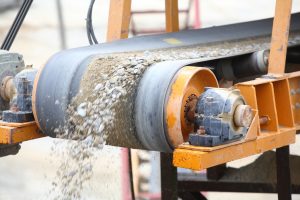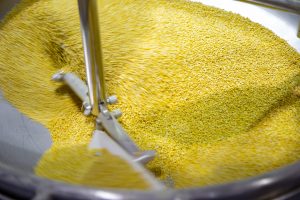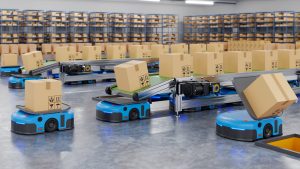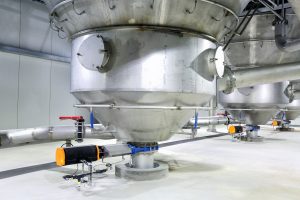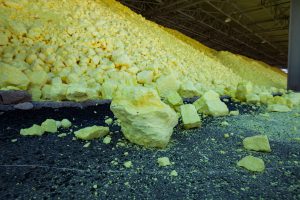3 Ways How to Improve Material Handling
Poor material handling slows down production, incurs costs, and even creates safety or sanitation hazards that can lead to expensive fines and plant shutdowns. Here are some ways to improve material handling for better efficiency and lower costs. Evaluate your process Identify the areas where there is poor material flow. Then, diagnose the causes and […]
See PostWhat Materials Are Prone to Problems in Material Handling?
One of the most common problems in material handling is how to get material to flow properly. Many materials have a tendency to clump, cake, or interlock during storage or mixing. That can impact the entire production process, and lead to unnecessary costs and safety issues. Types of material blocks Some materials have cohesive properties […]
See PostTop Challenges for Material Handling in the Candy Industry
Life isn’t always sweet for the candy and confectionary industry. The industry works with many materials that are prone to bridging, ratholing, and material blocks. Without a good flow aid, production can stall and end up in a big, sticky mess. We will review the top challenges for material handling in the candy industry. Most […]
See PostAirSweep, DAZIC & AcoustiClean: Integrated Solutions for Bulk Product Handling
The production process involves several interconnected steps. Any problems in one stage often create a domino effect, causing more delays and incurring more costs. Control Concepts, Inc. offers proven bulk product handling technology that improves plant efficiency and productivity that can be used individually or integrated to reduce downtime, material waste, and safety hazards. AirSweep […]
See Post3 Types of Material Blocks that Slow Down Production
In the manufacturing process, production speed and product quality heavily depend on reliable material flow. That means materials flow smoothly, in a first in/first out pattern. However, bulk materials have a tendency to clump together, cling to vessel walls, or form large material blocks that restrict the discharge outlets. Flow can slow down, or even […]
See PostWhy is AirSweep Effective for Mined Materials?
Mined materials are one of the most critical components of the manufacturing industry. They are used to make thousands of commodities, from automobiles to electronics, and even medicines and household cleaning products. The mobile phone alone uses 42 different minerals—not including what is used for its packaging (paper and plastic need minerals, too!) You can […]
See Post5 Top Technologies for Automated Bulk Material Handling
Bulk material handling is an essential part of any industrial or manufacturing process. Raw materials must be delivered to a factory, unloaded into storage facilities, and then poured into silos, hoppers, and other vessels for processing. Automated bulk material handling can make these processes more efficient. Here are some of the latest technology that can […]
See PostWhat Causes Material Bridging in Hoppers and How AirSweep Can Help
Material bridging in a hopper can slow down production and reduce bulk storage space. The stagnant material can spoil or become contaminated, and workers have to clear the vessel and throw out compromised batches. What is material bridging? Bridging is the material block that forms above the discharge outlet of a hopper, silo, or any […]
See PostSolve Common Problems When Handling Bulk Materials
Every industry uses dry bulk materials—whether it be chemical powders, pellets, flakes, mined minerals, raw materials, food, additives, stabilizers, or preservatives. Each of these materials has its own properties that can affect how they behave while being stored, transported, or processed. And when you’re dealing with tons of materials, the stakes become higher. Any problems […]
See PostAirSweep Solves Biggest Bulk Material Processing Challenges
Reliable material flow is critical for efficient bulk material processing. Material blocks slow down production and waste time and money. Stagnant material can also be contaminated or affect batch consistency. So, the biggest challenge of bulk material processing is to achieve on-demand, first-in/first-out material flow. Unfortunately, that is easier said than done. Why is it […]
See Post
